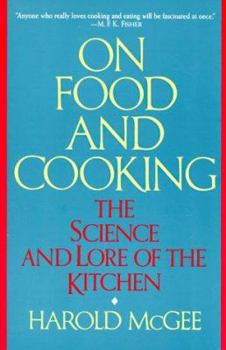On Food and Cooking: The Science and Lore of the Kitchen
(Book #1 in the The Science and Lore of the Kitchen Series)
Select Format
Select Condition 
Book Overview
An award-winning kitchen classic for over 35 years, and hailed by Time magazine as "a minor masterpiece" when it first appeared in 1984, On Food and Cooking is the bible which food lovers and... This description may be from another edition of this product.
Related Subjects
Cooking Cooking Education & Reference Essays Holiday Cooking Reference Science & MathCustomer Reviews
Definitive Text on Food Science AND Lore. Buy It.
the new and improved bible of food and cooking
McGee has outdone himself again
Rigorous, but understandable.
On Food and Cooking: The Science and Lore of the Kitchen Mentions in Our Blog

We chose "Blood and Muffins" as October's theme on account of #Halloween (and because it's #fun), but we had no idea you can use blood IN muffins. As an egg swap. (Gross, we know, but stay with us.) The joke is on us, because it turns out that their protein compositions are so similar they behave almost identically. We're not advocating a return to the old ways when it comes to cooking with blood, but the science nerds in us were curious about this new development, so if yours is too, read on to learn what we discovered about blood (and other strange substitutes).






